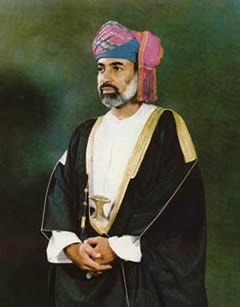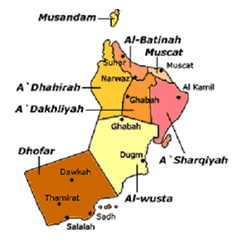Since Oman is an absolute monarchy, the hereditary
sultan is not only head of state but also head of the government. He rules
the sultanate with the help of ministers. As a kind of constitution serves
the “Basic Law of the State“, which was presented by Sultan
Qaboos in 1996.
The sultan does not designate a successor when alive. Instead, the ruling
family tries to unanimously designate a new sultan after his death. If
they do not designate a new ruler after three days, then they open a letter
left to them by the deceased sultan, containing a recommendation for a
new sultan. It is assumed that the ruling family will agree on this person
as the successor.
The Sultanate has neither political parties nor legislature, although
the representatives in the bicameral parliament provide the government
with advice. Universal suffrage for those over 21 was instituted on 04.10.2003.
Over 190,000 people (74% of those registered) voted to elect the 83 seats,
amongst them two women, of the Consultative Assembly (Majlis al-Shura)
for three years. The other chamber, the Council of State (Majlis al-Dawla)
has 41 members, who are directly appointed by the sultan.
Oman is divided into five regions (mintaqah) and four governorates (muhafazah).The
regions/governorates are further subdivided into 59 districts (wilayats).
To read more about politics in Oman, please download the essays "Introduction to Oman" by Felix Richter and "Governance and Democracy" by Oliver Hunkler and Peter Wolanski.
Continue to "Economy".

(Source: www.omanet.om)
